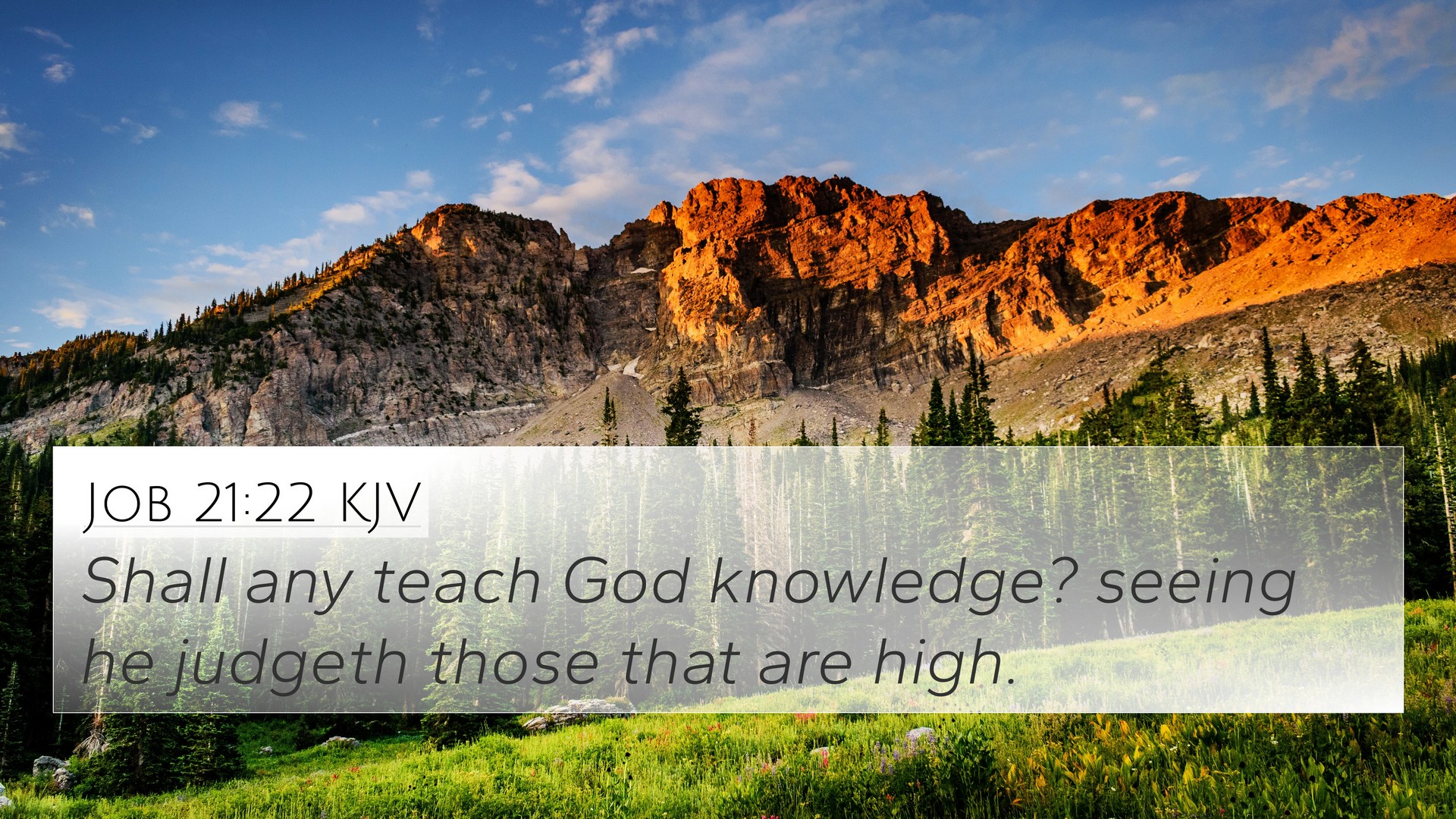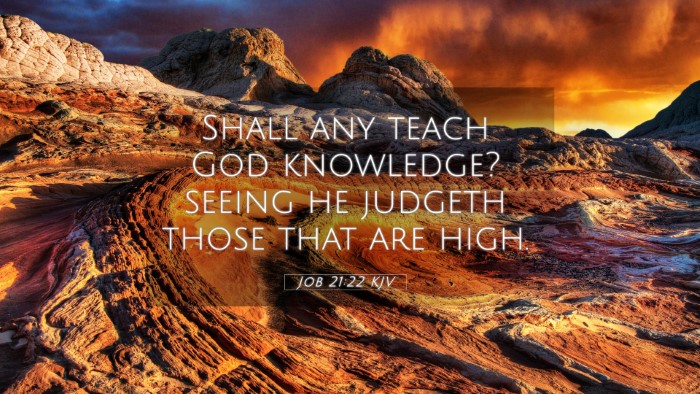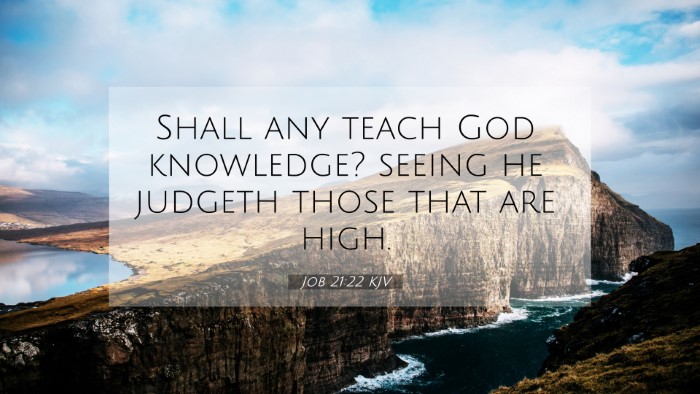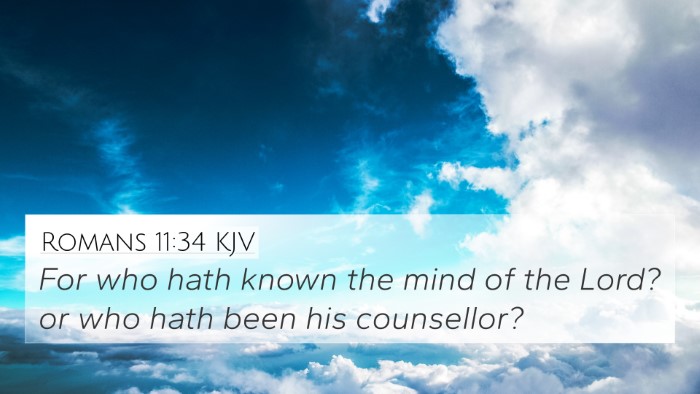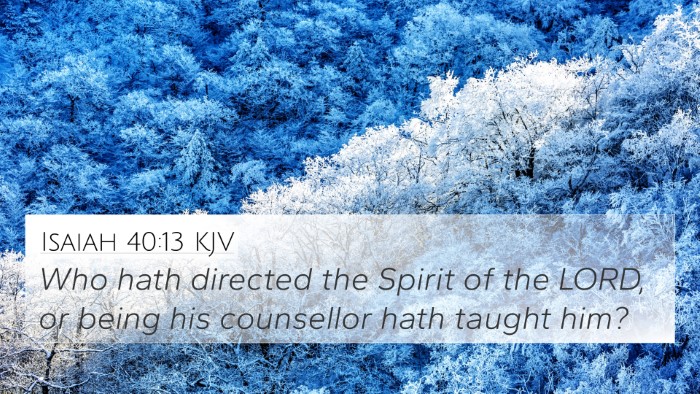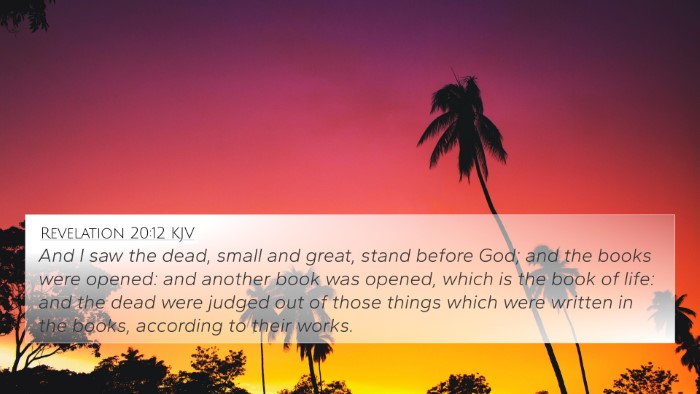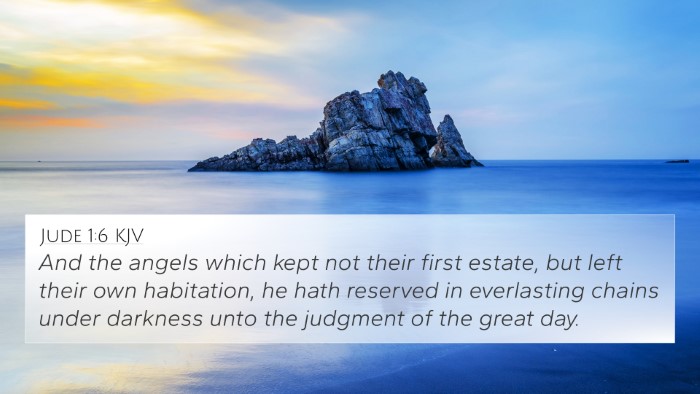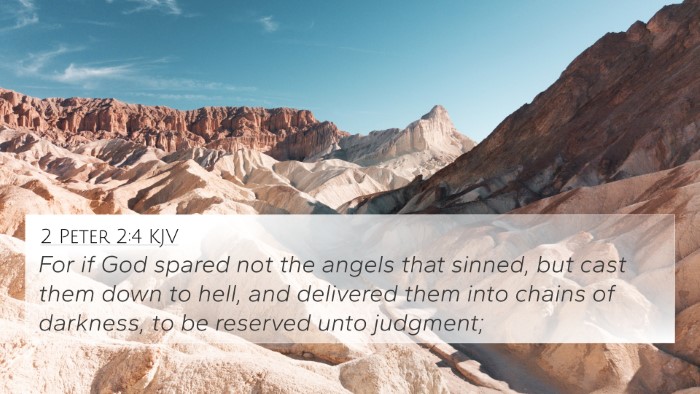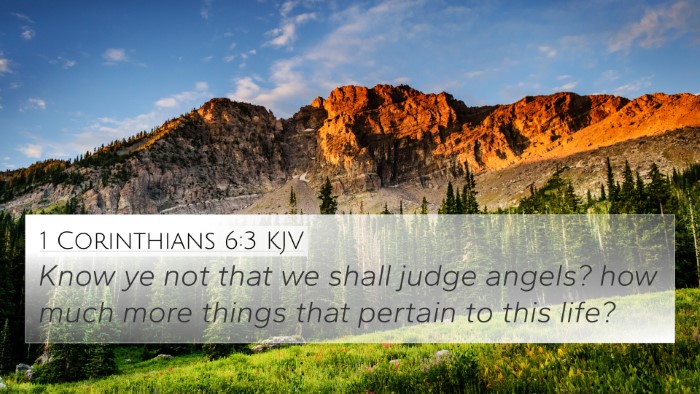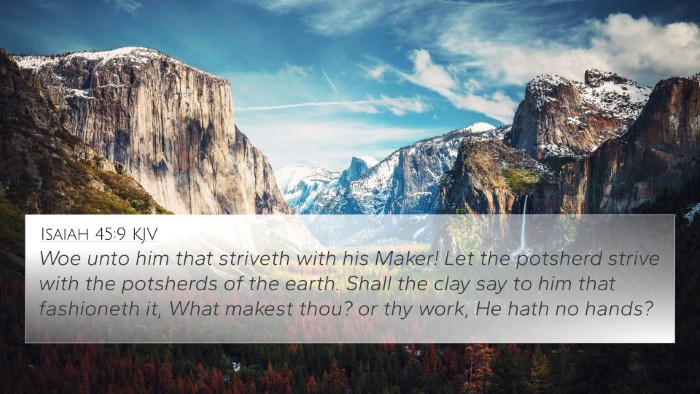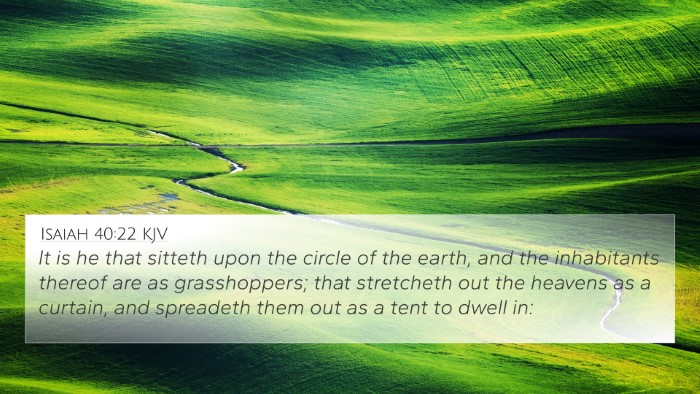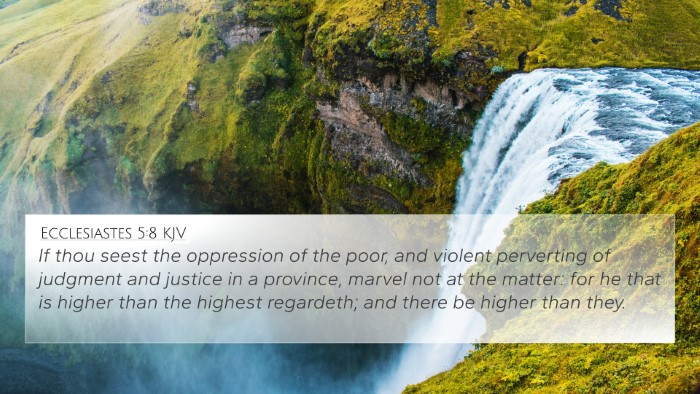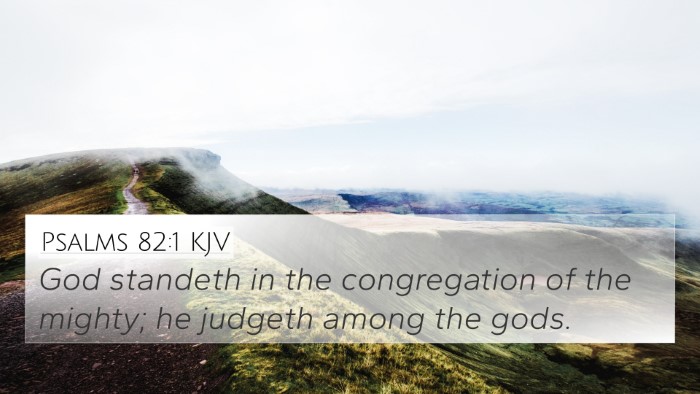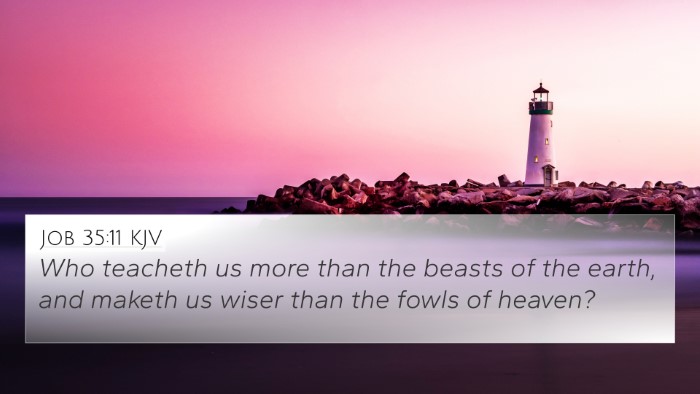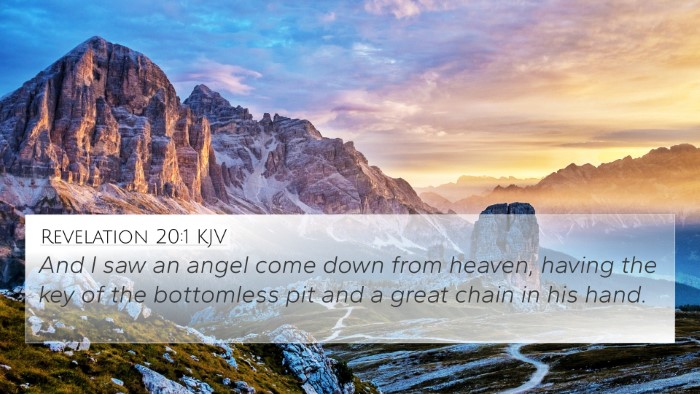Understanding Job 21:22
Job 21:22 states, “Shall any teach God knowledge? seeing he judgeth those that are high.” This verse emerges from a larger discourse within the Book of Job, wherein Job challenges the conventional wisdom of his contemporaries regarding divine justice and human righteousness.
Verse Meaning and Context
This verse highlights Job's assertion that God is beyond human instruction. Job emphasizes the futility of trying to impart knowledge to God, who possesses perfect wisdom and understanding.
- Divine Wisdom: The verse conveys that God’s judgments and understanding surpass human comprehension, echoing themes found in Isaiah 55:8-9 regarding God's thoughts being higher than man's.
- Human Limitation: Job underscores human limitations and the presumption of those who claim to offer God advice or teaching (Job 15:8).
- Scriptural Convergence: Connections can be made with Romans 11:34, which poses a similar question of human capability in teaching God.
Commentary Insights
Based on various public domain commentaries, the interpretations of Job 21:22 center on the themes of divine authority, knowledge, and human arrogance:
Matthew Henry’s Commentary
Henry elucidates that Job's statement reflects his indignation toward the friends who claimed knowledge of God’s will while failing to understand God's justice. Job confidently asserts that God does not require human testimony to validate His decisions.
Albert Barnes’ Commentary
Barnes emphasizes that the imagery in this verse serves as a potent reminder of God’s position as the supreme judge, unassailable by human reasoning or accusations. It implores mortals to recognize their place in the grand scheme of divine governance.
Adam Clarke’s Commentary
Clarke interprets the rhetorical question as an expression of Job’s despair and defiance, indicating a thought-provoking dialogue about the limitations of human knowledge compared to the omniscience of God.
Thematic Bible Verse Connections
This verse links to other scriptures that engage in discussions about wisdom, divine authority, and human understanding:
- Psalm 94:10 - Discussing God’s role as the one who teaches mortals knowledge.
- 1 Corinthians 1:25 - Highlighting the foolishness of God being wiser than men.
- Proverbs 21:30 - Emphasizing that there is no wisdom, nor understanding, nor counsel against the Lord.
- Job 9:12 - Job questions the ability of humans to reclaim what God has taken.
- Isaiah 40:13-14 - Reflecting on who can counsel the Spirit of the Lord.
- Romans 3:19 - Establishing God’s judgment upon the world, indicating a universal truth of human standing.
- Proverbs 26:12 - Discussing the folly of those who think they are wise in their own eyes.
Cross-Referencing Biblical Texts
Recognizing the interdependencies among these verses opens a fruitful dialogue between the Old and New Testaments:
- Connecting Job 21:22 to Hebrews 4:13, where all are naked and open unto the eyes of God.
- Comparing with Matthew 11:25, where Jesus speaks about revealing truths to the humble rather than to the wise.
- Linking to James 1:5, which encourages asking God for wisdom.
Tools for Bible Cross-Referencing
Engaging with the scripture through cross-referencing enhances understanding:
- Bible Concordance: A valuable tool that organizes verses by keywords for effective study.
- Bible Cross-Reference Guide: An essential resource for finding related scriptures.
- Cross-Referencing Bible Study: A method that links thematic elements across different books.
Concluding Thoughts
Job 21:22 serves as a profound meditation on the nature of divine knowledge and human ignorance. It invites readers to explore the depths of scripture through comparative analysis and thematic connections, using tools and methods that bolster our understanding of Biblical teachings. The interconnectedness of Biblical texts enriches our spiritual journey and deepens our relationship with the Divine.
